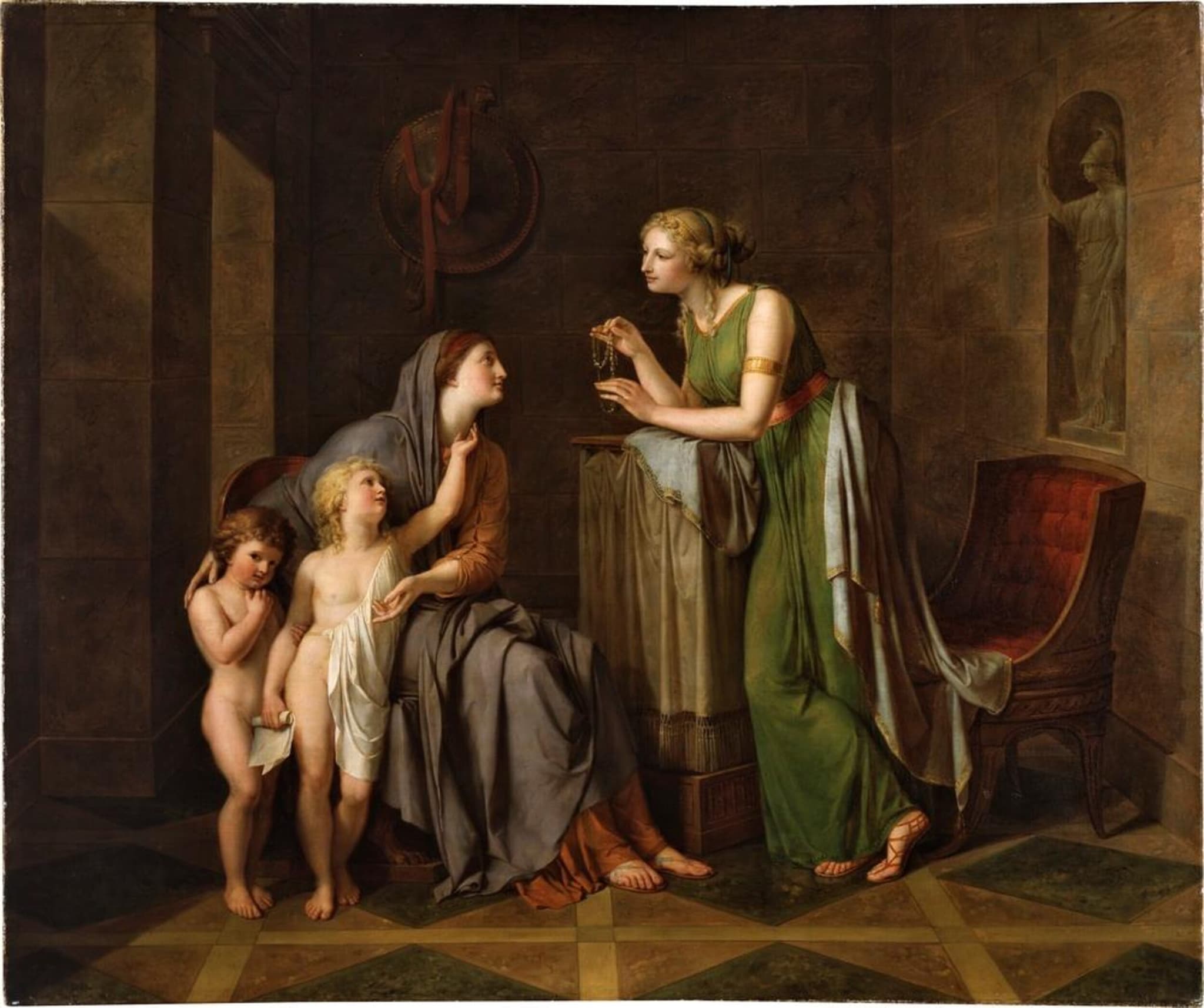Philipp Friedrich von Hetsch - Cornelia, mother of the Gracchi

- Title: Cornelia, mother of the Gracchi
- Artist: Philipp Friedrich von Hetsch (1758-1838)
- Date: 1794
- Medium: Oil on canvas
- Dimensions:
In the painting "Cornelia, mother of the Gracchi", Cornelia (c. 190s – c. 115 BC), wearing casual clothing and a veil on her hair, is seated embracing her two children in a loving way while talking to a woman standing in front of her.
The story of Cornelia and her two sons is not exaclty known and what they represent has evolved through history. Cornelia is thought to have been very educated and to have put herself apart from the rest of Roman women because of her interest in literature, writing, and her investment in the political careers of her sons.
The Gracchi brothers served in the plebeian tribunates and are often said to have been eloquent advocates for social reform who were both killed by a reactionary political system. ; their terms in the tribunate precipitated a series of domestic crises which are viewed as unsettling the Roman Republic and contributing to its collapse. They were portrayed as social revolutionaries and proto-socialists during the French Revolution and afterwards.
An anecdote related by a Valerius Maximus, a 1st-century Latin writer and author of a collection of historical anecdotes, demonstrates Cornelia's devotion to her sons. When a woman friends questioned Cornelia about her mode of dress and personal adornment, which was far more simple and understated than was usual for a wealthy Roman woman of her rank and station, Cornelia indicated her two sons and said, "Haec ornamenta mea sunt", i.e. "These are my jewels."